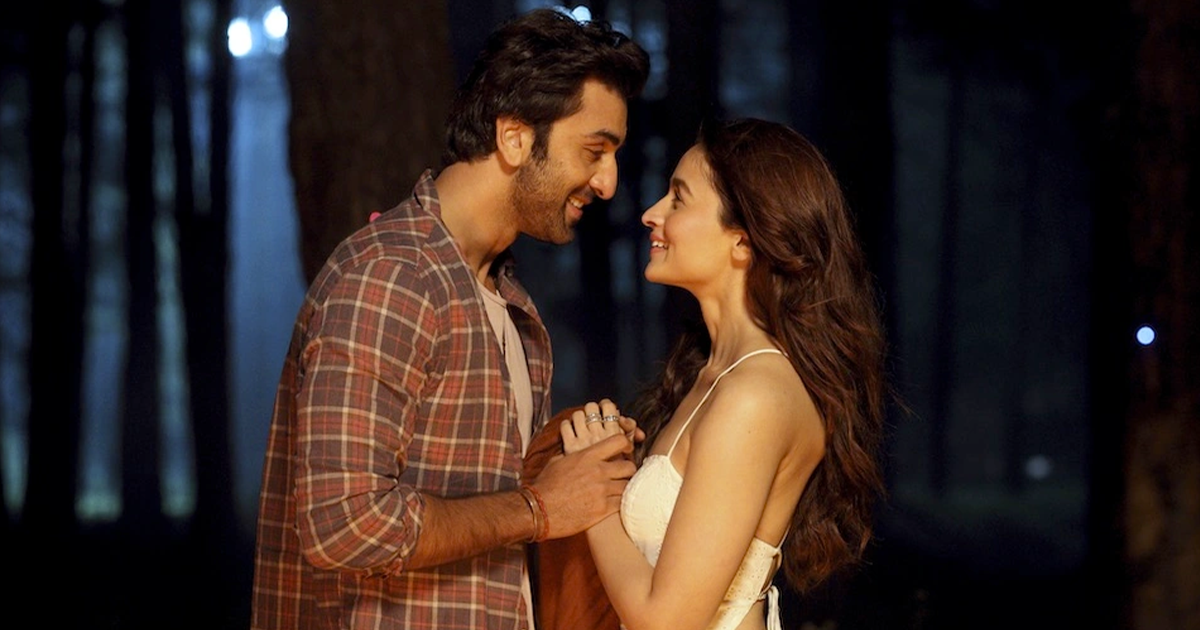Entertainment
Bollywood Has Always Been Obsessed With Reducing Women Characters To Love Interests & It’s Time To Move On

Long has been the history of women characters in movies dedicating their existence to their male counterparts and ‘their’ bildungsroman, coming of age so to speak. Take Bollywood movies many of us have grown up watching, for instance. They are filled with countless examples of the stock ‘manic pixie dream girl’ trope where women, despite having been given the illusion of individuality and ambition of their own, are gradually reduced to a mere catalyst in their beloved’s saga by the end of the film. Or, if not anything, they are love interests, and nothing else.

‘Manic Pixie Dream Girl’ is a popular fundamentally sexist trope of women characters in movies where they primarily exist to ‘fix’ the damaged hero, make his life better, become his guiding light, and an archetype of gender roles, while their individuality takes a backseat. Here, men are the heroes, and women are the props to help men attain their truest potential.
Nathan Rabin, an American film critic who first coined the term in a 2007 piece on ‘Elizabethtown‘ movie wrote, “The Manic Pixie Dream Girl exists solely in the fevered imaginations of sensitive writer-directors to teach broodingly soulful young men to embrace life and its infinite mysteries and adventures.” The latest example of the same in Bollywood would be Isha, played by Alia Bhatt, in Brahmastra.
In a meeting that spans a few minutes, Isha feels an unnatural connection with Shiva so much so that she chants her name over 100 times in the movie. Besides, her contribution to the film’s actual plot is next to nothing except for being the central male lead’s love interest. She happily puts herself in life-threatening situations just so Shiva can discover who he really is. We know nothing about her, her life or her journey before she met Shiva. It becomes almost as if she has had no life of her own and Shiva is her only purpose.
Three years prior to it, Arjun Reddy’s Hindi remake Kabir Singh portrayed a similar trajectory bordering on alarming obsessiveness and even violence. Preeti and Kabir’s all-consuming relationship was not only toxic, but Preeti had no character arc whatsoever. She was a mere prop, the lack of which prompted Kabir to take extreme steps only to be fixed, if not by her presence, then her absence by the end of the movie.
In 2013, Deepika Padukone’s character Naina in Yeh Jawaani Hai Deewani. Naina was introduced as this ambitious and intelligent medico who goes on a life-changing trekking trip. As the movie progresses, we get to know less and less about her as a person, her struggles, her aspirations, or anything at all. In fact, all of her presence in the film eventually boils down to her settling down the vagabond in Bunny.
The list is endless, you see, Kiara Advani in Bhool Bhulaiyaa 2, Anushka Sharma in Jab Tak Hai Jaan, Alia Bhatt in Student of the Year, Vaani Kapoor in Shamshera, and so many other female actors, have played characters where their individual struggles get a passing mention while their presence in the plot is reduced to revolve around or fix male characters.
Earlier this year, Luv Ranjan, the director infamous for portraying women as overdramatic and the dumbest species on planet Earth, released ‘Tu Jhoothi Main Makkaar’ featuring Ranbir Kapoor and Shraddha Kapoor. But this movie was different. You see, here, Shraddha Kapoor’s character, nicknamed Tinni, was given the illusion of individuality.
She was an opinionated independent career-oriented individual who knew where to draw boundaries in her relationship. Tinni loved and respected her boyfriend’s family but desired more private moments with just him, valued her personal space, and did not want to live in a joint family after marriage, having struggled with the same in her past, as opposed to her boyfriend. Neither of them was wrong, and well, it’s true she could have opted for a mature conversation instead of hiring a third party for an easy escape, that’s not the discussion.
She was NOT the ‘family separator’. She DID NOT want to put him in any spot where he had to choose but rather knew what she wanted in her life. Had the movie ended with a breakup, it would have still made sense, except they made her forego her individuality, whatever she stood for in favour of the so-called spirit of family, togetherness, and a forced happily ever after, and we see a long 3-minute musical sequence play as her life in a joint family setting (the one she NEVER desired, btw) is romanticised. The film ends with a compromise on the woman’s part but hey it’s not problematic since she did it happily, and after all, it’s all about loving the family, isn’t it?
In spite of these films, it’s important to acknowledge we have been making a categorical shift towards creating female characters with nuance, the likes of Deepika Padukone as Piku, Kangana Ranaut as Rani, Vidya Balan as Vidya Bagchi, or Alia Bhatt as Gangubai. However, there is still a long way to go.
Reducing women to mere love interests propagates toxic ideologies of traditional gender roles wherein a woman’s life gets viewed in context of men, their personal aspirations are deemed unimportant, and their existence gets overshadowed. And giving female characters the illusion of individuality whilst withdrawing the same by the end of the film doesn’t help either.
It’s 2023, and it’s high time filmmakers move on from diminishing women characters into a stereotype.
Read More From Entertainment
Move Over Dangal: This Bollywood Classic Holds the Record for Highest Ticket Sales Abroad
Vedika Negi
“Period Cramps Are Psychological,” Says Tina Ahuja & We’re Shaking Our Heads
Vedika Negi
Astrologer Predicts Divorce for Aishwarya-Abhishek & Sonakshi-Zaheer, But Is It Really Necessary?
Isha Jain